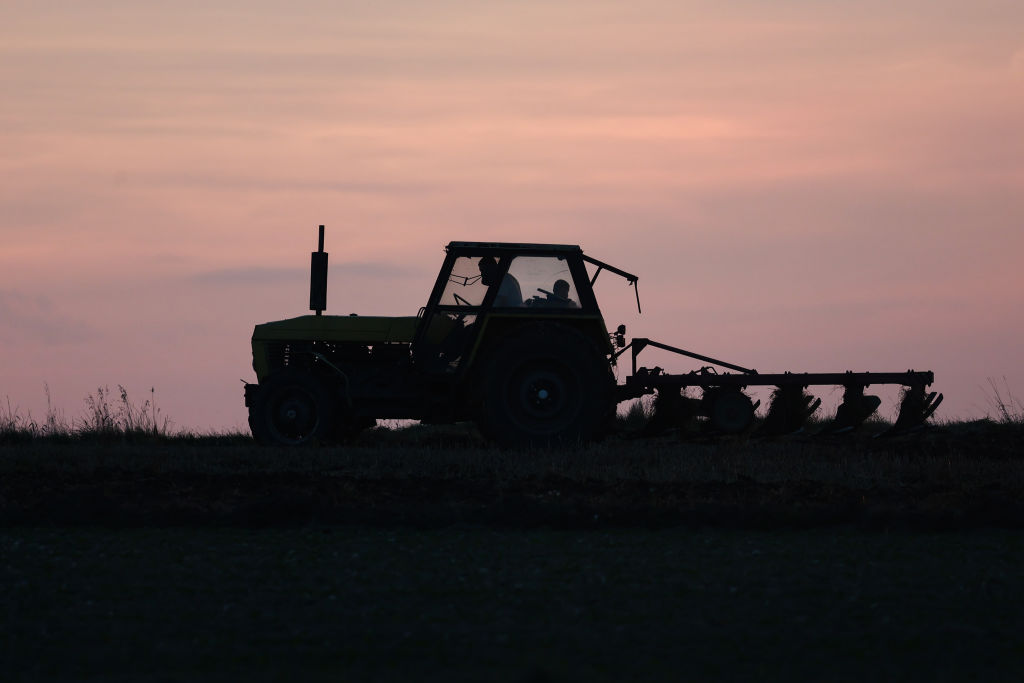Karol Siewruk is a 28-year-old farmer from Masuria, in rural Poland. Over the years, he has seen many of his friends and peers leave rural areas behind in search of city jobs. He argues that Europe’s future food security depends on making farming a stable and attractive career for the next generation.
I’m 28 years old and I’m a farmer. I was raised in Masuria, Poland, which most people know for its 2,000 lakes. It’s a beautiful region but many of my peers have left farming for more typical urban jobs.
It’s an understandable decision: Farm income is volatile and policy requirements change all the time. One season margins are adequate; the next, higher costs, adverse weather or a change in regulation can wipe them out. And for those starting out without land or machinery, the barriers to entry are even higher. Acquiring land demands significant capital, and you’re already looking at a five or six -figure outlay for tools and a basic tractor. Even with the right equipment, the work remains physically demanding and often undervalued.
The European Union says it wants to attract the next generation into farming. But with just 11% of Europe’s farmers under 40, the numbers tell a different story. The reality is that we’ve been talking about the ‘young farmer problem’ for years, while the average age of those still in the profession keeps climbing.
In Brussels, they draw up safety nets for farmers and promise security through the Common Agricultural Policy (CAP). Despite specifically designing provisions to help young farmers start out, the support feels inconsistent. The system changes year on year and for someone deciding whether to take on debt for land or machinery, that kind of uncertainty is crippling. You can just about mitigate for bad weather or a poor harvest; you can’t predict political indecision.
If Europe is serious about turning this around, it must start by breaking down the barriers. The EIT Food Consumer Observatory recently found that many young people see farming as poorly paid, exhausting and insecure. I can’t blame them. In Poland, property regulations make it worse. Agricultural land is cheap to hold, with low levies and tax exemptions making it appealing for people to hold on to territories they don’t actually farm. The result is less land on the market, higher prices and young farmers shut out.
Society’s shift towards urbanisation is a key factor in the future of farming. Cities are brimming with opportunities that attract people from far and wide. But we need to invest in rural areas too. My peers are having to choose between staying on the farm or accessing culture, job opportunities and good schools for their children. As cities have swelled, rural infrastructure has been neglected and forgotten. Farmers are more than just workers. We want to live good lives in thriving areas.
Modern farming is an exciting and growing sector. It has huge technical and innovative potential, from data-driven crop management to regenerative practices that mitigate climate change. The EIT report highlights the appeal of building scientific careers and pioneering developing technologies for young people.
And though the EU is now working on a strategy for generational renewal, it must do more than produce another report if it’s to succeed. It must lock in stable, long-term policies that give young farmers confidence to invest in their futures. It must protect those already working the land while opening the door for those who want to join us.
Because this isn’t just about my generation’s career choices. It’s about whether, in 10 or 20 years, Europe will have enough farmers to produce the food it needs. If we want that answer to be ‘yes’, the time to address these is now.
